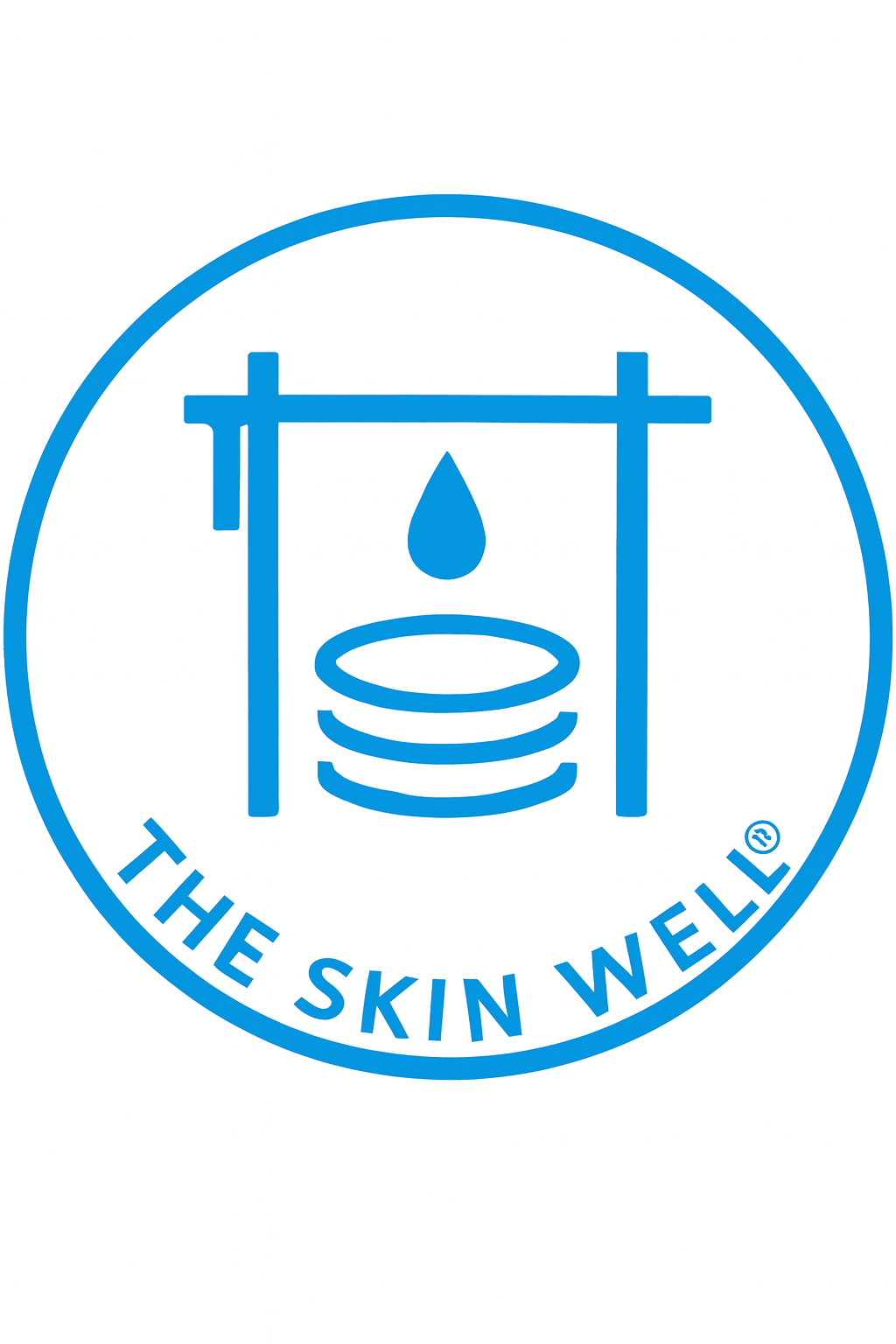From The Skin Well® | Drawn from the Happy Skin Leaflet Series
Psoriasis is a complex skin condition, influenced by internal and external factors. This checklist is designed to help you gently reflect on what might be contributing to a flare — not as a way to fix everything at once, but to notice patterns and feel more informed.
🧴 SKIN PRODUCTS & DAILY HABITS
☐ Tried new skincare, shampoo, or personal care products
☐ Using fragranced soaps, shower gels, or hair products
☐ Scratching or rubbing plaques or irritated areas
☐ Skipping moisturiser or emollient routines
☐ Wearing clothes that rub or create friction
What might help:
→ Use fragrance-free, barrier-supportive products (NHS)
→ Moisturise consistently — even during flare-free times (BAD)
🧠 STRESS, SLEEP & EMOTIONAL TRIGGERS
☐ Recently experienced emotional stress or burnout
☐ Struggling with sleep, worry, or overwhelm
☐ Relationship tension or feeling unsupported
☐ Flare followed a period of emotional or physical stress
What might help:
→ Create calm routines and boundaries where possible
→ Support emotional health alongside skin care — stress is a recognised psoriasis trigger (NHS)
🩺 HEALTH, IMMUNE SYSTEM & MEDICATIONS
☐ Recently had an illness or throat infection
☐ Took or stopped medication (e.g. steroids, lithium, beta-blockers)
☐ Changes in immune health, vaccination, or recovery
☐ Joint stiffness, tiredness, or new symptoms
What might help:
→ Keep track of health changes and speak to your GP if needed (BAD)
→ Nourish your immune system with supportive habits
→ If you suspect psoriatic arthritis (joint stiffness, swelling), seek prompt medical advice (NHS)
🍽️ FOOD, DRINK & GUT HEALTH
☐ Increase in processed foods, sugar, or alcohol
☐ Digestive issues or signs of imbalance (bloating, fatigue)
☐ Not drinking enough water or eating many wholefoods
☐ Recently taken antibiotics or gut-affecting medications
What might help:
→ Some people find dietary patterns affect psoriasis — especially alcohol, weight, and ultra-processed foods — but evidence is mixed. Track carefully. (NHS - Living with psoriasis)
→ Support general nutrition and hydration for overall health (but remember moisturising is essential for skin barrier protection)
🌦️ WEATHER & ENVIRONMENT
☐ Flare-up linked to cold, dry air or central heating
☐ New detergents, cleaning products, or bedding
☐ Exposure to pollution, or sudden climate changes
☐ Recent travel or environment change
What might help:
→ Support the skin in dry conditions with emollients/barrier creams (NHS)
→ Reduce triggers like fragrance, dust, and heat where possible
→ Sunlight can help psoriasis in moderation, but avoid sunburn (NHS)
💡 REMEMBER
Psoriasis is not your fault — and it’s not always in your control. But understanding your body’s patterns can help reduce stress and support your skin in meaningful ways.
Speak to a medical practitioner or pharmacist if symptoms persist, worsen, or affect your wellbeing.
⚠️ One Final Note: Fire Safety and Fabrics
Some moisturisers, including richer barrier creams, can leave a residue on clothes or bedding. This can make fabric more flammable if exposed to flames or heat. To stay safe, avoid smoking or open fires when using emollients, and wash bedding and nightwear regularly at 60 °C (GOV.UK).
The Skin Well®
A grassroots, evidence-aware initiative supporting public skin education.
👉 @theskinwell_
Disclaimer
Whilst every effort has been made to ensure accuracy, the information in this leaflet is for educational purposes only. It should not replace professional advice from a qualified healthcare practitioner. If you have concerns about your skin or treatment, please consult your GP, pharmacist, or another healthcare professional.
Version: [Sept / 2025]
© 2025 Jacqui de Jager | The Skin Well® & The Happy Skin Clinic®
All rights reserved. This leaflet is for personal use and education only. It may not be reproduced, distributed, or adapted without written permission.
